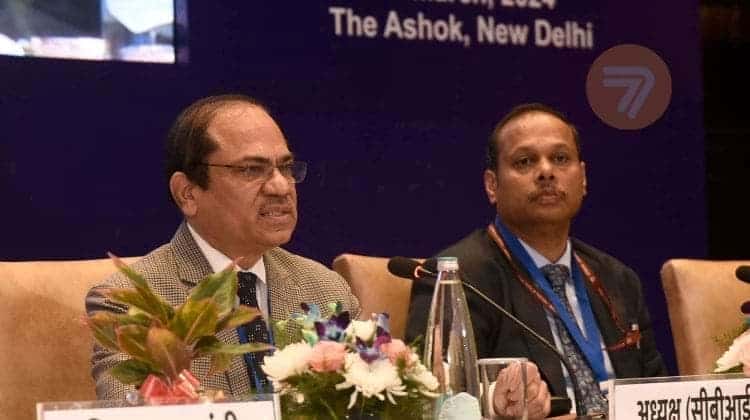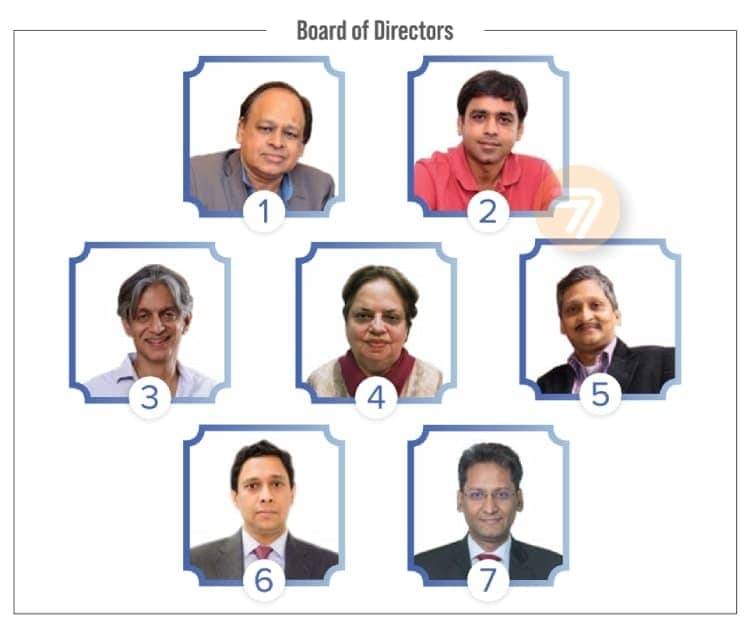Indian Online Gaming Goes Global In a Bid to Survive
02 Aug 2024
CBIC Chairman Sanjay Kumar Agarwal at National Conference of Enforcement Chiefs of State and Central Goods and Services Tax, New Delhi, the 4th of March, 2024. Image: CBIC official Facebook handle.
Government Is Content; No Need to Interfere In a Healthy Situation
“So, I don’t know when a person is healthy whether there is any need to go to doctors,” Sanjay Kumar Agarwal, Chairman of India’s Central Board of Indirect Taxes and Customs (CBIC), told the media in a recent interview.
The “healthy person” the CBIC Chairman referred to was the homegrown online money gaming industry. Agarwal was answering questions about whether the Government saw any need to review the 28% GST on entry-level deposits in online money games, casinos, horse races, and lotteries, effective 1 October 2023.
“Is there any need to take up a review? The revenue which is coming from this sector is good. Prior to October 2023, the GST collection from online gaming was on the lines of Rs 250 crore a month. After the new tax rate, it has been consistently above Rs 1,100 crore per month, and for a few months, it has crossed Rs 1,300 crore. So it is a four-fold jump,” Sanjay Kumar Agarwal clarified.
Moreover, there have been no problems with implementing the new tax regime in practice, the head of CBIC highlighted. The industry is surviving well, and customers do not feel the burden because it is taken from the prize pools, Agarwal concluded and expressed confidence in the country’s system of indirect taxes, pointing to the Group of Ministers (GoM) working on GST rate rationalization.
“They are working on it (rate rationalization) and they will try to do it quickly because that is the ask now as GST has stabilised. The tax regime is seven years old now and the revenue is also good. Now there is need for this kind of reforms,” the CBIC Chairman said.
No Comment on Retrospective GST Notices; They Are Subjudice
CBIC head Sanjay Kumar Agarwal did not comment on the show-cause notices sent to gaming companies. These notices demand payment of retrospective GST. The matter is currently sub judice, pending resolution in the Supreme Court of India. Agarwal emphasized that the 28% GST on the industry is prospective.
Meanwhile, two subsidiaries of Nazara Technologies received fresh show-cause notices from the DGGI in Kolkata. These notices demand a total of ₹1,120 crore in GST dues as of July 16.
Openplay Technologies, acquired by Nazara in August 2021 for ₹186.4 crore, received a demand for ₹845.72 crore. Halaplay Technologies, also acquired in several transactions, has been asked about ₹274.21 crore in liabilities.
These notices pertain to the period between FY18 and FY23. They address the total amounts paid by players toward game prize pools, rather than GST paid over Gross Gaming Revenue (GGR), as revealed in Nazara’s stock exchange filing.
Nazara stated, “Both subsidiaries are reviewing the notices with their legal counsels and tax advisors to determine their future course of action.”
Nazara Technologies reported a 4.3% increase in revenue from operations, reaching ₹1,138 crore in FY24. Profits rose by 23%, from ₹61 crore in FY23 to ₹75 crore in FY24. The two subsidiaries accounted for about 2% of Nazara’s revenues and 1% of the holding company’s profit for Q4 FY24.
The two new show-cause notices add to the 71 previously issued to India’s online money gaming industry. These total ₹1,12,332 crore in nominal value, excluding penalties and interest.
The last filing on this significant case, combining 27 industry pleas against the DGGI, was registered on August 1. The next tentative date for listing has been set for August 13.
Nazara Ranked among Top 10 Strategic Buyers in Global Gaming

A recently released Mergers and Acquisitions (M&A) report by Drake Star covers global gaming for Q2 2024. The report ranks Indian company Nazara Technologies in eighth place among the world’s Top 10 Strategic Buyers. Nazara made three acquisitions totaling $42.6 million (₹356.8 crore).
Mumbai-based Nazara ranks behind Keywords Studios and AONIC, which hold the 6th and 7th positions with two acquisitions each. Keywords Studios has acquisitions worth $112.1 million, while AONIC’s total is $110.0 million. MTG follows Nazara in 9th place, with one deal valued at $45.0 million. Atari rounds out the list in 10th place, having made six acquisitions totaling $27.0 million.
“This is extremely encouraging as Nazara is set for more international acquisitions in 2024. We are honored to be recognized on the global stage. This ranking is not just a win for Nazara but for the entire Indian gaming community. Together, we are making India a global gaming giant to reckon with,” commented Nazara’s founder and CEO Nitish Mittersain.
Global Recognition on the Backdrop of 76.3% Decline in Investments
Tracxn data quoted by the media shows that investments in the Indian online gaming industry slowed down to $19.1 million (₹160 crore) for the period January- June 2024, compared to $80.7 million (₹675.9 crore) for the same period last year, marking a drop of 76.3%.
Notably, the real money gaming (RMG) segment, including Rummy and Online Fantasy Sports, comprised only around 4% of Nazara Technologies’ total revenues for FY23. “We were always conservative on online gaming due to uncertainties in regulation and taxation. Once more clarity comes in, we can be more active. We’re not opposed to it,” Nitish Mittersain shared in an interview earlier this year.
By the beginning of 2024, Nazara had amassed through several fundraisers a chest of ₹1500 crore ($179.1 million) in consolidated cash reserves aimed to fuel organic growth and strategic M&A, both domestically and abroad.
“In India, we’ll look at developers with early-stage IP, while for global firms, we’ll look at developers with more scaled-up IP, strong profitability and cash flow. Our idea is to acquire companies with established gaming IP, and then scale it up. We’ve identified many opportunities, and are meeting companies actively to see acquisition opportunities,” Mittersain said.
BigCash Enters Brazillian iGaming Market, Eyes Global Expansion
BigCash, another Indian skill-based online money games operator with a strong presence in large metros and Tier II and Tier III cities across the country, has announced its recent venturing into the Brazilian iGaming market as part of its global expansion plans.
“Going global has been part of our strategic planning always; with our launch in Brazil, we have just taken the first step. We are aspiring to be present in 8 countries in the next 12 months,” BigCash CEO Ankur Singh stated.
“The competitive landscape in Latin America’s gaming industry presents both opportunities and challenges. BigCash is a perfect fit for the Latin American gaming landscape due to our stronghold on tech, which allows product customizations, easy-to-play online games, a supersafe and fast experience; we are already gaining a lot of organic traction,” Singh added.
Indian Gaming Sector Looks Robust and Is Expanding
Looking at the macro figures, perspectives must be bright: tax revenues have jumped fourfold, and activities seem consistent—Indians keep playing online skill games with money. The homegrown industry is expanding its reach to the global scene, perfectly in line with PM Modi’s vision of a multi-trillion-dollar digital economy.
Below the macro level, however, the so-called “consolidation” phase is taking its toll on smaller businesses and individuals who lose or find new jobs. Companies are pressed to find sustainability when they cannot pass the new GST burden on to customers.
“To make India a game development hub and take “Make in India” games to the world, we look forward to substantial budgetary allocations being made under the AVGC fund which are aligned with the recommendations of the AVGC Task Force,” All India Gaming Federation (AIGF) CEO Roland Landers pleaded while the full budget 2024 was being prepared.
“A clarity on the GST will help drive the next phase of growth, provide conducive business environment, and revive investor confidence in the sector. These moves will make gaming a cornerstone of Digital India and be the catalyst for India to achieve its goal of a trillion-dollar digital economy,” Landers stressed.



